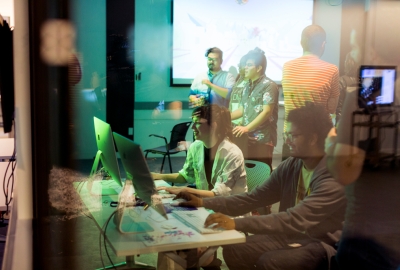Explores processes for designing effective learning experiences, bridging theory (cognitive science, psychology, learning sciences) and practice through case studies and a semester‑long challenge project. We cover models from ADDIE to SAM and human‑centered design, examining analysis, design, development, implementation, evaluation phases, and their integration with agile and waterfall methodologies. Students apply frameworks to diverse settings—classrooms, online communities, museums, game worlds—designing environments that enable meaningful learning interactions
Course #
EDCT-GE 2158
Credits
3
Department
Administration, Leadership, and Technology


